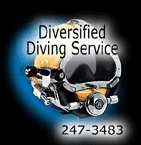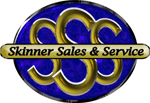 By THOMAS STAUFFER Arizona Daily Star December 15, 2006
That's the first thought Delpha Andrusyk had after opening an envelope Monday that contained a check for $2,875 payable to her from USA Oil Refining LLC of Elkton, Md. "Truthfully, I thought it a scam right off the bat," said the 87-year-old Tucson, Ariz. resident. "But it actually does look like a real check."
While USA Oil Refining is indeed a real company based in Elkton, Md., it's currently being used illegally by scammers apparently based in Ontario, said Chris Frye, an accountant with USA Oil Refining. "She's right. It's a scam, and unfortunately, there are some people who are apparently falling for it," Frye said. The "Sweepstakes Scam" or "Foreign Lottery Scam," works this way: The letter informs the recipients that they've won cash prizes in private lotteries or based on investments they've made, for sums in the six- to seven-figure range. The marks are then instructed to deposit a cashier's check included in the notification letter in their bank accounts and to wire or send back a check for the same amount to cover "taxes," "administrative costs," or "insurance fees." The marks' checks are real. The "sweepstakes" checks are bogus. In Andrusyk's case, she was asked to call a number to verify her $75,000 total "winnings." Such a phone call usually results in a conversation that ends up requiring winners to send the value of their initial prize check to an address completely different from the company named in the letter. Foreign-lottery scams, most often emanating from Canada, have been around for years. The latest scams have been widely reported for more than a year, and use checks written on either a stolen account or a fraudulent one, said Kim States, spokeswoman for the Southern Arizona Chapter of the Better Business Bureau. States said the local bureau gets about two calls a day from people sent initial "prize winnings." "The problem is that people will get these checks and get online and find out that the company seems to be legitimate, as in this case," States said. "And people want so badly to believe it's real." Many people opt to deposit the check and let it sit there for a week or so, then send a check for the "taxes" to the scammers thinking that it's safe to do so because the bank hasn't informed them that the check they deposited is fake, States said. "Even in today's electronic age of banking, it can take a week or more before it can even get caught in the system," she said. It's very difficult to recover funds from Canada once people send money there, States said. Frye said USA Oil Refining is asking recipients of checks tied to company to send the entire contents, including the envelope to the address listed - the USA Oil Refining's actual address - to aid federal authorities working on the scheme. States said people who receive similar checks tied to other companies should put them back in their original envelopes and forward them to the U.S. Postal Inspection Service. Another scam recently reported comes in the form of $500 American Express gift checks, which American Express doesn't issue, States said. "They are counterfeited out of country, and smuggled into this country," States said. "The cons on this end take those, go through the phone book or online phone directory and mass-mail a handful of the gift checks along with a letter full of lies asking the recipient to deposit or cash the checks and wire the money to Canada for one reason or another," she said. Avoiding scams - Be wary of any offer of large sums of money, such as sweepstakes or lottery winnings, in exchange for your advance payment, donation or investment. - Don't be pressured into making a decision about an offer. Check it out first! - Be cautious about businesses that try to conceal mailing addresses and phone numbers and evade questions about operations. - Be aware that if you respond to even one of these offers, your name may be added to a "mooch" list used by criminals to target past victims. - To forward suspicious offers
the U.S. Postal Inspection Service, cross out your address, write
"Forward to Postal Inspectors" on the envelope and
return to mailbox or post office. For more information or to
file a formal complaint, go to www. usps.com/postalinspectors/
or the Federal Trade Commission at www.ftc.gov.
Scripps Howard News Service, http://www.shns.com Publish A Letter on SitNews Read Letters/Opinions
|
||


